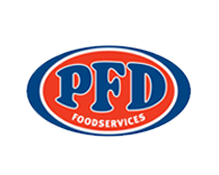Heuristics
Heuristics: Heuristics are rules of thumb that are used to make decisions.
Heuristics are a powerful form of problem solving, allowing decisions to be made quickly and efficiently. A heuristic is an experience-based approach which relies on the accumulation of wisdom and knowledge. This article will explore what Heuristics are, why they have become so important in modern decision making, and how they can be used effectively.
The concept of Heuristics can be traced back to ancient philosophy, where it was primarily concerned with forming logical conclusions based on limited information or data. In recent years however, Heuristics has evolved into a more sophisticated tool for decision makers looking to make sense of complex problems in an ever changing environment. It has been adopted by organisations across many industries as a way to remain competitive in today's rapidly shifting markets.
The use of Heuristics allows leaders to focus their resources on areas that can yield maximum returns while minimising risks associated with uncertainty. By understanding the fundamentals behind Heuristics, readers will gain insight into how this technique can help them identify opportunities for growth and avoid potential pitfalls when making strategic decisions.
What Is A Heuristic Approach?
A heuristic approach is a decision-making strategy that uses mental shortcuts to come to conclusions based on limited information. This type of approach relies on the use of availability bias, representativeness heuristics, and other cognitive biases in order to arrive at an answer quickly and efficiently. Heuristics are often used when individuals have limited resources or time available for making decisions—a concept known as bounded rationality.
Heuristics can be divided into two groups: those which focus on affect (involving emotion) and those which focus on cognition (concerning thought). Affective heuristics involve using emotional responses to make decisions; these may include feeling more attracted toward one choice over another without being able to explain why, or choosing something because it makes them feel good even if they don’t know much about it. Cognitive heuristics rely more heavily on reason and logic; this includes the availability and representativeness heuristics, where people base their judgement off of what is most familiar or relevant to them rather than seeking out new information.
Overall, the role of heuristics in decision-making has been studied extensively by researchers who study the correlation between human behaviour and outcomes related to choices made under various circumstances. Whether an individual chooses to apply one of these mental shortcuts depends largely upon how well informed they are about their options, but overall these strategies provide a practical way for people to make quick yet effective decisions with limited knowledge or resources.
What Is A Heuristic In Simple Terms?
Heuristics is an important concept in decision-making processes. It involves the use of rational decision-making techniques to determine the optimal solution to a given problem, while allowing for some flexibility and adjustment depending on the context. The history of heuristics goes back centuries, but it has been largely developed over the past few decades in both cognitive psychology and clinical decision making.
Cognitive Heuristics are based upon the idea that humans rely on certain mental shortcuts or 'rules of thumb' when faced with complex tasks or decisions. These rules generally involve using past experience as well as common sense approaches to quickly arrive at a judgement under uncertainty or incomplete information. One example would be the Adjustment Heuristic: This heuristic suggests that people adjust their initial expectations about outcomes according to new information instead of reevaluating them from scratch each time. In this way, individuals can make quick decisions without having to process too much data.
In terms of its application within decision-making fields such as economics, business management and medicine, heuristics provide an effective means of arriving at solutions more efficiently than traditional methods might allow. For instance, rather than attempting to weigh up all possible options before coming to a conclusion, one could use a heuristic approach which takes into account relevant factors and allows for adjustments where necessary. As such, it can help reduce processing time and improve accuracy in many situations where time is of the essence and resources are limited.
What Is Heuristic And Its Example?
Heuristics is a concept from the field of behavioural economics that refers to using simplified rules and mental shortcuts for decision-making. The idea was proposed by Herbert Simon in 1947, who suggested that humans use heuristic reasoning when making decisions due to limited cognitive resources and the need to make quick choices under uncertainty. This form of rational choice theory suggests that we tend to make decisions based on our prior experiences or familiarity with certain options rather than relying solely on logic or analysis.
The landmark approach developed by John Wiley provides an example of how heuristics can be used while engaging in difficult tasks requiring high cognitive load. In this model, individuals are asked to choose among several landmarks instead of all possible alternatives which allows them to simplify their thought process and reduce complexity. Additionally, Gigerenzer G has highlighted two common types of heuristics: scarcity (when something is scarce it will have greater value) and familiarity (familiarity with an object increases its perceived value). Both these approaches rely on simple assumptions about human behaviour that allow people to make judgements without going through complex calculations.
Heuristics play an important role in decision-making as they provide a way for us to quickly evaluate situations and avoid being overwhelmed by information overload. While there is evidence suggesting that heuristic can lead to distortions such as cognitive bias, research shows that for most everyday problems, heuristic strategies often outperform algorithms in accuracy and efficiency.
What Are The 3 Types Of Heuristics?
Heuristics are methods used to make rational decisions in complex scenarios where exact solutions may be difficult or impossible. It is a study of how people use mental energy and resources to come up with the best possible solution for any given situation.
There are three main types of heuristics:
- trial-and-error,
- rule-based, and
- adaptive learning.
Trial-and-error heuristic involves trying different strategies until one proves successful. This type of heuristic works by randomly selecting potential actions that an individual might take before settling on a choice they feel will result in optimal decision making. Rule-based heuristics involve using general principles or rules when solving problems; this is often seen as the most common form of heuristic thinking today. Lastly, adaptive learning is a type of heuristic that takes into account past experiences when making future decisions; it uses feedback from previous experiments to help guide future ones.
These 3 kinds of heuristics can provide useful insights into the process of decision making and allow individuals to identify patterns which could lead them towards better outcomes than if they had relied solely on intuition or guesswork. By understanding how these processes work, people can learn how to make more informed choices and optimise their chances for success in various situations.
What Is A Good Example Of Heuristic?
Heuristics are a decision-making process that is used to make quick and effective choices. They involve using rules of thumb, human judgement, or attribute substitution when making decisions in order to save time and energy. Heuristics have been studied for educational purposes in order to understand how people apply them within the decision-making process.
A good example of heuristic would be choosing between speed and cost effectiveness when making a choice. For example, if you need to purchase an item from a store but it is too far away, then you might use the heuristic of lowest cost option to quickly find what store has the best price for the same product. This can help you avoid wasting your time looking at each individual store which could take longer than needed. It also eliminates cognitive biases as one does not consider any other factors aside from cost when selecting the current node during this decision-making process.
Heuristics provide individuals with useful tools when they must decide quickly on something without having all available information or resources readily accessible to them. By understanding this concept better, we can gain insight into how humans reach conclusions based on their own experiences and knowledge rather than strictly relying solely on facts and figures alone.
Conclusion
Heuristics is a powerful tool for problem solving and decision making. It allows individuals to make decisions quickly in situations where there are multiple options, or when the outcome cannot be accurately predicted. Heuristic techniques can help develop effective solutions by simplifying complex problems into smaller more manageable chunks, allowing an individual to focus on what matters most.
The three types of heuristics include availability heuristics, representativeness heuristics and anchoring and adjustment heuristics. The availability heuristic looks at easily available examples that people draw from their experiences. Representativeness looks at how likely it is that something belongs to a certain group based on its similarities with other members of the same group. Anchoring and adjustment involves using prior information as a starting point for further calculations.
An example of a good heuristic would be evaluating job applicants based on the strength of their resumes rather than interviews alone. Resumes give employers insight into candidate’s experience, qualifications and accomplishments in one concise document which saves them time compared to interviewing each applicant individually. Employers can then use this information as an initial anchor while they assess the fit between the position requirements and the candidates' skill set through additional evaluation methods such as interviews or tests.
Overall, heuristics provide quick yet accurate assessments in uncertain environments, helping individuals make sound decisions within limited resources or time constraints. Through understanding different types of heuristics used in various scenarios, people can apply these mental shortcuts effectively to save valuable time without sacrificing accuracy thereby improving overall efficiency levels.
PREVIOUS NARROW AI GLOSSARY TERM
NEXT NARROW AI GLOSSARY TERM
Heuristics Definition
Exact match keyword: Heuristics N-Gram Classification: Heuristic Algorithm, Heuristic Programming, Heuristic Search Substring Matches: Heur, stics Long-tail variations: "Heuristic Algorithm", "Heuristic Programming", "Heuristic Search" Category: Computer Science, Artificial Intelligence Search Intent: Information, Research, Solutions Keyword Associations: Logic Programming, Expert System, Fuzzy Logic Semantic relevance: Optimization techniques, Machine Learning, Decision Making Parent Category: Computer Science Subcategories: Artificial Intelligence, Machine Learning, Optimization Algorithms Synonyms: Logic Programming , Expert System , Fuzzy Logic Similar searches: Artificial Intelligence , Machine Learning , Optimization Algorithms Geographic relevance : Global Audience demographics : Students , Researchers , Software Engineers Brand mentions : Google , Microsoft , Amazon Industry-specific data : Bayesian network inference algorithms , Constraint solving algorithms , Evolutionary computation Commonly used modifiers : "Algorithm","Programming","System" Topically relevant entities : Optimization Techniques , Machine Learning , Decision Making , Heuristic Algorithm , Heuristic Programming , Heuristic Search."Larry will be our digital expert that will enable our sales team and add that technological advantage that our competitors don't have."
Kerry Smith
CEO, PFD Foods
$1.6 billion in revenue 
"Lion is one of Australasia’s largest food and beverage companies, supplying various alcohol products to wholesalers and retailers, and running multiple and frequent trade promotions throughout the year. The creation of promotional plans is a complicated task that requires considerable expertise and effort, and is an area where improved decision-making has the potential to positively impact the sales growth of various Lion products and product categories. Given Complexica’s world-class prediction and optimisation capabilities, award-winning software applications, and significant customer base in the food and alcohol industry, we have selected Complexica as our vendor of choice for trade promotion optimisation."
Mark Powell
National Sales Director, Lion
"At Liquor Barons we have an entrepreneurial mindset and are proud of being proactive rather than reactive in our approach to delivering the best possible customer service, which includes our premier liquor loyalty program and consumer-driven marketing. Given Complexica’s expertise in the Liquor industry, and significant customer base on both the retail and supplier side, we chose Complexica's Promotional Campaign Manager for digitalizing our spreadsheet-based approach for promotion planning, range management, and supplier portal access, which in turn will lift the sophistication of our key marketing processes."
Richard Verney
Marketing Manager
Liquor Barons

"Dulux is a leading marketer and manufacturer of some of Australia’s most recognised paint brands. The Dulux Retail sales team manage a diverse portfolio of products and the execution of our sales and marketing activity within both large, medium and small format home improvement retail stores. We consistently challenge ourselves to innovate and grow and to create greater value for our customers and the end consumer. Given the rise and application of Artificial Intelligence in recent times, we have partnered with Complexica to help us identify the right insight at the right time to improve our focus, decision making, execution, and value creation."
Jay Bedford
National Retail Sales Manager
Dulux

"Following a successful proof-of-concept earlier this year, we have selected Complexica as our vendor of choice for standardizing and optimising our promotional planning activities. Complexica’s Promotional Campaign Manager will provide us with a cloud-based platform for automating and optimising promotional planning for more than 2,700 stores, leading to improved decision-making, promotional effectiveness, and financial outcomes for our retail stores."
Rod Pritchard
Interim CEO, Metcash - Australian Liquor Marketers
$3.4 billion in revenue 
"After evaluating a number of software applications and vendors available on the market, we have decided to partner with Complexica for sales force optimisation and automation. We have found Complexica’s applications to be best suited for our extensive SKU range and large set of customers, being capable of generating recommendations and insights without burdening our sales staff with endless data analysis and interpretation.
Aemel Nordin
Managing Director, Polyaire
"DuluxGroup is pleased to expand its relationship with Complexica, a valued strategic partner and supplier to our business. Complexica’s software will enable DuluxGroup to reduce the amount of time required to generate usable insights, increase our campaign automation capability, personalise our communications based on core metrics, and close the loop on sales results to optimise ongoing digital marketing activity."
James Jones
Group Head of CRM, DuluxGroup
"Instead of hiring hundreds of data scientists to churn through endless sets of data to provide PFD with customer-specific insights and personalised recommendations, Larry, the Digital Analyst® will serve up the answers we need, when we need them, on a fully automated basis without the time and manual processes typically associated with complex analytical tasks.”
Richard Cohen
CIO, PFD Foods
$1.6 billion in revenue 
"As a global innovator in the wine industry, Pernod Ricard Winemakers is always seeking ways to gain efficiencies and best practices across our operational sites. Given the rise of Artificial Intelligence and big data analytics in recent times, we have engaged Complexica to explore how we can achieve a best-in-class wine supply chain using their cloud-based software applications. The engagement is focused on Australia & New Zealand, with a view to expand globally."
Brett McKinnon
Global Operations Director, Pernod Ricard Winemakers
"70% - 80% of what we do is about promotional activity, promotional pricing -- essentially what we take to the marketplace. This is one of the most comprehensive, most complex, one of the most difficult aspect of our business to get right. With Complexica, we will be best in class - there will not be anybody in the market that can perform this task more effectively or more efficiently than we can."
Doug Misener
CEO, Liquor Marketing Group
1,400+ retail stores 
"The key thing that makes such a difference in working with Complexica is their focus on delivering the business benefits and outcomes of the project."
Doug Misener
CEO, Liquor Marketing Group
1,400+ retail stores 
"Australia needs smart technology and people, and it has been a great experience for me to observe Complexica co-founders Zbigniew and Matt Michalewicz assemble great teams of people using their mathematical, logic, programming, and business skills to create world-beating products. They are leaders in taking our bright graduates and forging them into the businesses of the future."
Lewis Owens
Chairman of the Board, SA Water 
"Having known the team behind Complexica for some years ago now, I am struck by their ability to make the complex simple - to use data and all its possibilities for useful purpose. They bring real intelligence to AI and have an commercial approach to its application."
Andrew McEvoy
Managing Director, Fairfax Media - Digital 
"I have worked with the team at Complexica for a number of years and have found them professional, innovative and have appreciated their partnership approach to delivering solutions to complex problems."
Kelvin McGrath
CIO, Asciano 
“Working with Complexica to deliver Project Automate has been a true partnership from the initial stages of analysis of LMG’s existing processes and data handling, through scoping and development phase and onto delivery and process change adoption. The Complexica team have delivered considerable value at each stage and will continue to be a valued partner to LMG."
Gavin Saunders
CFO, Liquor Marketing Group 
“Complexica’s Order Management System and Larry, the Digital Analyst will provide more than 300 Bunzl account managers with real-time analytics and insights, to empower decision making and enhanced support. This will create more time for our teams to enable them to see more customers each day and provide the Bunzl personalised experience.”
Kim Hetherington
CEO, Bunzl Australasia 
"The team behind Complexica develops software products that are at the cutting edge of science and technology, always focused on the opportunities to deliver a decisive competitive edge to business. It has always been a great experience collaborating with Matthew, Zbigniew and Co."
Mike Lomman
GM Demand Chain, Roy Hill Iron Ore 
"The innovations that the Complexica team are capable of continue to amaze me. They look at problems from the client side and use a unique approach to collaborating with and deeply understanding their customers challenges. This uniquely differentiates what they bring to market and how they deliver value to customers."
John Ansley
CIO, Toll Group 
"Rather than building out an internal analytics team to investigate and analyse countless data sets, we have partnered with Complexica to provide our sales reps with the answers they need, when they need them, on a fully automated basis. We are excited about the benefits that Larry, the Digital Analyst will deliver to our business.”
Peter Caughey
CEO, Coventry Group 
“Complexica’s Order Management System and Larry, the Digital Analyst will provide more than 300 Bunzl account managers with real-time analytics and insights, to empower decision making and enhanced support. This will create more time for our teams to enable them to see more customers each day and provide the Bunzl personalised experience.”
Kim Hetherington
CEO, Bunzl Australasia 
"After an evaluation process and successful proof-of-concept in 2016, we have chosen to partner with Complexica to upgrade the technological capability of our in-field sales force. The next-generation Customer Opportunity Profiler provided by Complexica will serve as a key tool for sales staff to optimise their daily activities, personalise conversations and interactions with customers, and analyse data to generate actionable insights."
Stephen Mooney
Group Sales Capability Manager, DuluxGroup
$1.7 billion in revenue
"After evaluating a number of software systems available in the marketplace, we have ultimately selected Complexica as our vendor of choice for sales force automation and CRM. Given the large SKU range we carry and very long tail of customers we serve, Complexica’s applications are best suited to deal with this inherent complexity without burdening our staff with endless data entry."
Nick Carr
CEO, Haircaire Australia
Australia's largest distributor of haircare products
“Asahi Beverages is Australia’s largest brewer, supplying a leading portfolio to wholesalers and retailers, including some of Australia’s most iconic brands. Last year Asahi Beverages acquired Carlton & United Breweries, which is its Australian alcohol business division. To harness the strength of our expanded portfolio, we partner with our customers to run multiple and frequent trade promotions throughout the year, delivering long-term growth for both our business and theirs. Given the inherent complexity in optimising promotional plans and our continued focus on revenue and growth management, we have selected Complexica as our vendor of choice after a successful Proof-of-Concept of its world-class optimisation capabilities.”
Kellie Barnes
Group Chief Information Officer
Asahi Beverages
"Dulux is a leading marketer and manufacturer of some of Australia’s most recognised paint brands. The Dulux Retail sales team manage a diverse portfolio of products and the execution of our sales and marketing activity within both large, medium and small format home improvement retail stores. We consistently challenge ourselves to innovate and grow and to create greater value for our customers and the end consumer. Given the rise and application of Artificial Intelligence in recent times, we have partnered with Complexica to help us identify the right insight at the right time to improve our focus, decision making, execution, and value creation."
Jay Bedford
National Retail Sales Manager, DuluxGroup
"At Liquor Barons we have an entrepreneurial mindset and are proud of being proactive rather than reactive in our approach to delivering the best possible customer service, which includes our premier liquor loyalty program and consumer-driven marketing. Given Complexica’s expertise in the Liquor industry, and significant customer base on both the retail and supplier side, we chose Complexica's Promotional Campaign Manager for digitalizing our spreadsheet-based approach for promotion planning, range management, and supplier portal access, which in turn will lift the sophistication of our key marketing processes."
Richard Verney
Marketing Manager, Liquor Barons


































